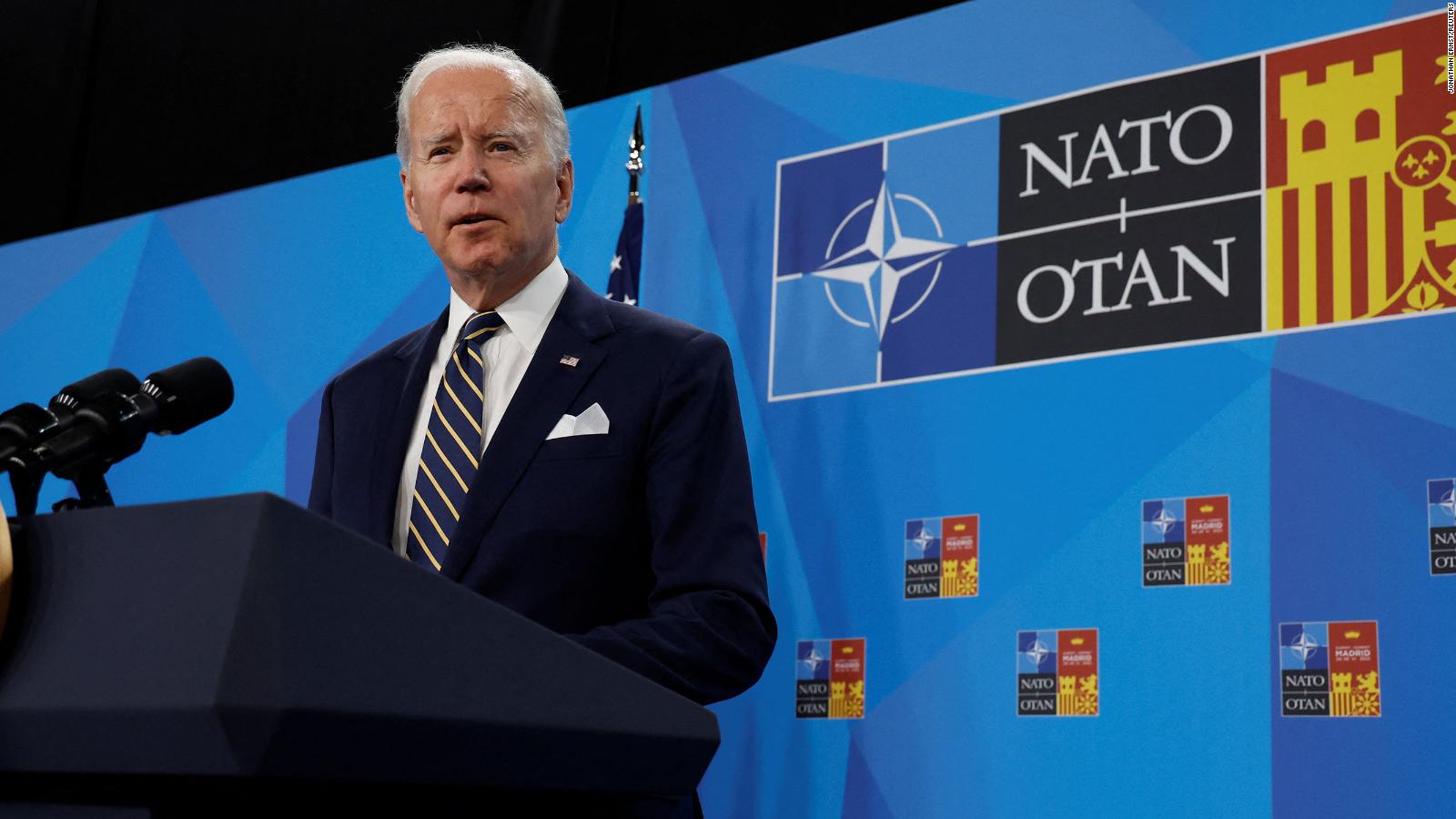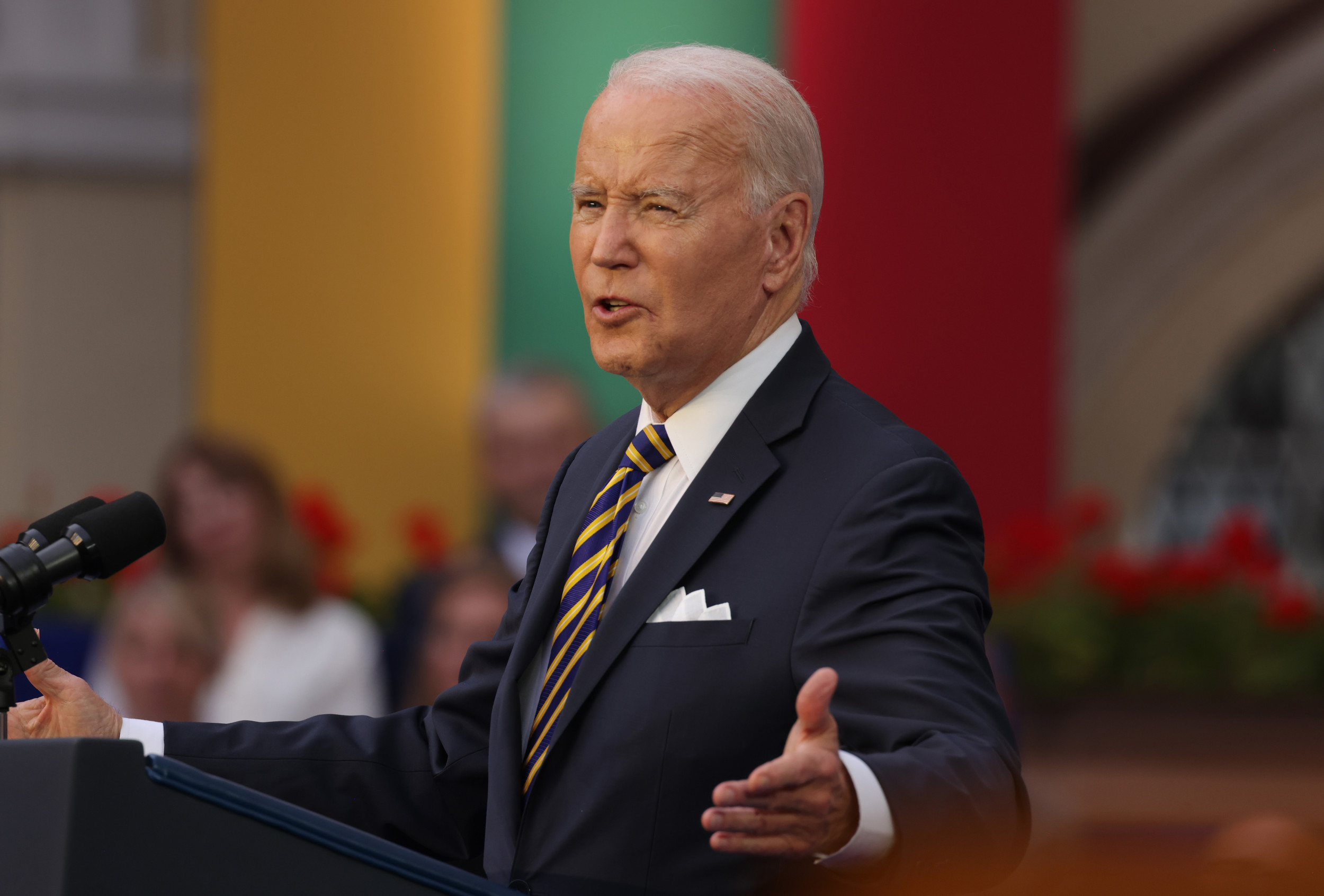Biden’s Role in NATO
Biden nato –
Biden’s involvement with NATO dates back to his time as a senator. He has been a vocal supporter of the alliance and has played a key role in shaping its policies. As Vice President under Barack Obama, Biden was responsible for overseeing US relations with NATO. In this role, he helped to strengthen the alliance’s ties with Eastern Europe and played a key role in the decision to intervene in Libya in 2011.
Biden’s NATO commitments have drawn support from across the political spectrum, including from Republican Senator Marco Rubio. Rubio has been a vocal advocate for a strong NATO alliance, arguing that it is essential for deterring Russian aggression. He has also praised Biden’s leadership in strengthening NATO, calling it a “positive step forward” in the face of growing threats from Russia and China.
As President, Biden has continued to be a strong supporter of NATO. He has reaffirmed the US commitment to the alliance and has worked to strengthen its unity in the face of challenges from Russia and China. Biden has also been a vocal advocate for increased defense spending among NATO members.
President Biden’s recent meeting with NATO allies underscores the importance of collective security in an increasingly uncertain world. Senator Mark Warner , a strong advocate for NATO, has emphasized the need for continued cooperation and unity among allies to deter potential threats and ensure the stability of Europe.
Biden’s reaffirmation of NATO’s Article 5 commitment demonstrates the unwavering resolve of the alliance to protect its members.
Biden’s Diplomatic Approach within NATO
Biden’s diplomatic approach within NATO has been characterized by his emphasis on consensus and his willingness to work with allies to find common ground. He has also been a strong advocate for dialogue with Russia, even as he has condemned the country’s actions in Ukraine. Biden’s diplomatic approach has been successful in strengthening NATO’s unity and in deterring Russia from further aggression.
NATO’s Evolution under Biden’s Presidency

Under President Biden’s leadership, NATO has undergone significant changes and developments. Biden has played a pivotal role in shaping NATO’s policies and strategies, bringing about a renewed focus on collective security and a more robust response to emerging threats.
Biden’s Influence on NATO’s Policies and Strategies
Biden’s influence on NATO is evident in several key areas. Firstly, he has emphasized the importance of collective defense, reaffirming NATO’s commitment to Article 5 of the Washington Treaty. This has been demonstrated through increased military exercises, enhanced intelligence sharing, and the deployment of additional troops to member states.
Secondly, Biden has prioritized addressing non-traditional threats, such as cyber attacks, hybrid warfare, and disinformation campaigns. NATO has established new structures and capabilities to counter these threats, including the NATO Cooperative Cyber Defense Centre of Excellence and the Strategic Communications Centre of Excellence.
Challenges and Opportunities for NATO under Biden’s Leadership: Biden Nato

NATO faces several challenges under Biden’s leadership, including the ongoing war in Ukraine, the rise of China, and the threat of terrorism. However, Biden’s presidency also presents opportunities for NATO, such as the chance to strengthen its collective defense and to build new partnerships.
Challenges
- The war in Ukraine: The war in Ukraine has been a major challenge for NATO. The conflict has tested the alliance’s unity and resolve, and it has raised questions about NATO’s ability to deter Russian aggression.
- The rise of China: The rise of China is another major challenge for NATO. China is rapidly modernizing its military, and it is increasingly challenging the United States and its allies in the Asia-Pacific region.
- The threat of terrorism: The threat of terrorism remains a major challenge for NATO. Terrorist groups continue to operate in many parts of the world, and they pose a significant threat to NATO member states.
Opportunities
- Strengthening collective defense: Biden’s presidency presents an opportunity for NATO to strengthen its collective defense. The alliance can do this by increasing its military spending, by improving its military readiness, and by developing new defense technologies.
- Building new partnerships: Biden’s presidency also presents an opportunity for NATO to build new partnerships. The alliance can do this by reaching out to countries in the Asia-Pacific region, in the Middle East, and in Africa.
- Reforming NATO: Biden’s presidency also presents an opportunity for NATO to reform itself. The alliance can do this by making its decision-making process more efficient, by improving its communication, and by increasing its transparency.
Recommendations, Biden nato
NATO can address its challenges and seize its opportunities by taking the following steps:
- Increasing its military spending: NATO members should increase their military spending to 2% of their GDP. This will help the alliance to deter Russian aggression and to meet the challenges posed by China.
- Improving its military readiness: NATO should improve its military readiness by conducting more exercises and by stockpiling more equipment. This will help the alliance to respond quickly to any crisis.
- Developing new defense technologies: NATO should develop new defense technologies to counter the threats posed by Russia and China. This includes developing new weapons systems, new sensors, and new communication systems.
- Reaching out to new partners: NATO should reach out to new partners in the Asia-Pacific region, in the Middle East, and in Africa. This will help the alliance to build a global network of partners that can help to address common challenges.
- Reforming NATO: NATO should reform itself by making its decision-making process more efficient, by improving its communication, and by increasing its transparency. This will help the alliance to be more effective and more responsive to the challenges of the 21st century.
